Carrots are a kitchen staple, known for their beta-carotene, vitamin A, and natural sweetness. But what happens when they’re frozen? Can you cook carrots after they’ve been frozen? The good news is that not only can you cook them, but frozen carrots are also versatile, time-saving, and nutritious. Whether you’re adding them to hearty soups, tossing them in a quick stir-fry, or using them for meal prep, frozen carrots are a practical ingredient that ensures minimal waste and maximum convenience. For creative ways to incorporate frozen vegetables into your meals, check out Frozen Carrots Recipe Ideas for inspiration.
Freezing carrots doesn’t diminish their value as a healthy ingredient. In fact, frozen carrots retain their nutrients and can easily fit into a variety of dishes, from comforting casseroles to wholesome stir-fries. As they’re pre-washed, peeled, and often pre-cut, they save time while offering the same great flavor and benefits as fresh carrots. Plus, with recipes like Slow Cooker Taco Soup Recipe or Sausage Pasta With Spinach Recipe, you can explore delicious ways to enjoy frozen carrots while keeping your cooking stress-free.
In this guide, we’ll discuss everything you need to know about frozen carrots: how freezing affects their texture, the best cooking methods, and why they’re an excellent choice for busy households. Plus, we’ll provide tips, answer FAQs, and suggest easy recipes so you can make the most out of every carrot, whether fresh or frozen.
The Impact Of Freezing On Carrots
Freezing is one of the most effective methods to preserve carrots, maintaining their flavor and nutritional value for extended periods. However, freezing affects the structure, texture, and sometimes the nutrient composition of carrots. Understanding these changes can help you make the most of your frozen carrots in the kitchen.
What Happens To Carrots During Freezing?
When carrots are frozen, their high water content forms ice crystals inside the vegetable’s cells. This process can affect the texture and structure of the carrots:
- Cell Wall Ruptures: Ice crystals break down the cell walls, leading to a softer texture once thawed or cooked. This is why frozen carrots might not have the same crispness as fresh carrots.
- Preserved Flavor: Despite the texture change, the natural sweetness and flavor of carrots remain intact, making them ideal for cooked dishes.
- Nutrient Retention: Frozen carrots are typically blanched before freezing, a process that stops enzyme activity, helping to retain their vibrant color, flavor, and nutritional content.
Blanching: A Key Step Before Freezing
Blanching is the process of briefly boiling vegetables and then rapidly cooling them in ice water. It serves several purposes for frozen carrots:
- Maintains Quality: Stops enzyme activity that can cause spoilage, preserving the carrots’ flavor and color.
- Retains Nutrients: Locks in key nutrients like beta-carotene and vitamin A.
- Improves Texture: While blanching softens carrots slightly, it prevents them from becoming overly mushy after freezing.
Do Frozen Carrots Lose Nutrients?
Frozen carrots retain most of their nutrients, but some loss can occur:
- Water-Soluble Vitamins: A small amount of vitamin C may be lost during blanching and freezing, but the majority of the nutrients remain intact.
- Beta-Carotene: This vital antioxidant is highly stable during freezing, ensuring frozen carrots are still a rich source of vitamin A.
Texture Changes In Frozen Carrots
The primary difference between fresh and frozen carrots is the texture. Fresh carrots are crisp and firm, while frozen carrots, due to cell wall breakdown, become softer when cooked. This makes them perfect for dishes where softness is desired, such as soups, stews, or purees.
For more ideas on how to cook frozen carrots and maintain their flavor, you can explore Frozen Carrots Recipe Ideas for inspiration.
Frozen Carrots And Shelf Life
Frozen carrots offer a significant advantage in terms of longevity. When kept in an airtight container or freezer bag:
- Shelf Life: They can last 6–12 months without losing quality.
- Reduced Waste: Freezing ensures that surplus carrots don’t spoil, making them a cost-effective solution for meal prep.
Freezing carrots is a smart way to preserve their taste, color, and nutrients while providing a versatile ingredient for countless recipes. Whether you’re cooking soups, casseroles, or stir-fries, frozen carrots are a convenient option that minimizes waste and maximizes flavor. For more tips on incorporating frozen vegetables into your meals, check out Slow Cooker Taco Soup Recipe or Sausage Pasta With Spinach Recipe.
How To Cook Frozen Carrots
Do You Need To Thaw Frozen Carrots?
Whether to thaw carrots depends on the dish you’re preparing:
- For Soups And Stews: You can add frozen carrots directly into the pot. This method is quick and keeps their texture intact.
- For Roasting Or Stir-Frying: Thawing the carrots slightly can help remove excess moisture and achieve a better texture.
For example, Slow Cooker Taco Soup Recipe showcases how frozen vegetables, including carrots, can be used without thawing, making meal preparation even easier.
Best Cooking Methods For Frozen Carrots
1. Boiling
- Bring a pot of water to a boil and add the frozen carrots.
- Cook for 5–7 minutes, depending on their size.
- Avoid overcooking, as it can make them mushy.
2. Steaming
- Set the carrots in a steamer basket above boiling water.
- Steam for 5–8 minutes to retain nutrients and flavor.
3. Roasting
- Preheat the oven to 425°F (220°C).
- Toss the carrots with olive oil, salt, pepper, and herbs.
- Roast for 25–30 minutes, flipping halfway through for even browning.
4. Stir-Frying
- Heat a skillet with oil over medium heat.
- Add the frozen carrots and cook for 5–7 minutes, stirring frequently.
- Enhance their flavor with soy sauce, garlic, or ginger.
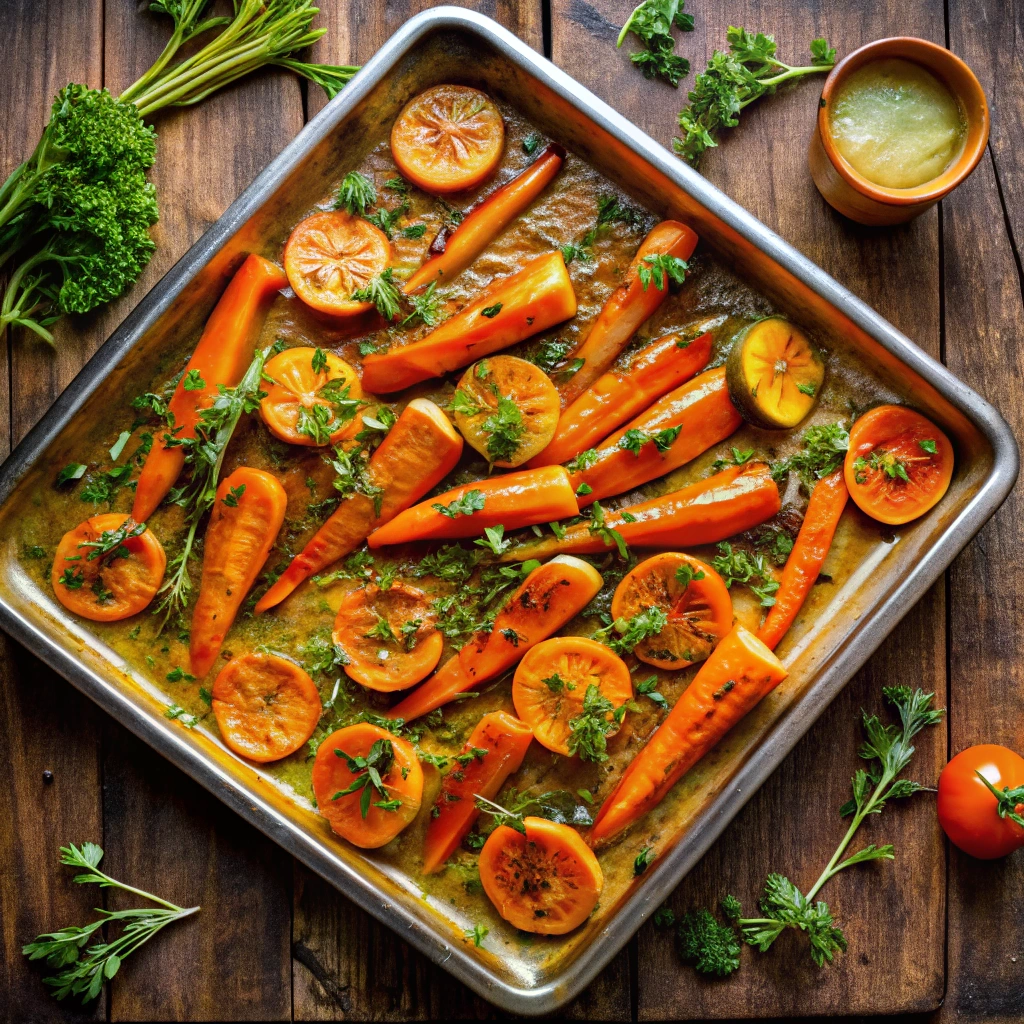
Fresh Vs. Frozen Carrots: How Do They Compare?
When it comes to deciding between fresh and frozen carrots, there are several factors to consider, such as taste, texture, nutritional value, convenience, and cost. Both options have their advantages, depending on the situation and how they’ll be used. Let’s break it down:
Taste And Texture
- Fresh Carrots: Fresh carrots are crisp, firm, and full of crunch. They are the ideal choice for raw dishes like salads, slaws, or as a healthy snack with dips. Their crunchy texture makes them a favorite for recipes that call for grated carrots, like carrot cakes or coleslaw.
- Frozen Carrots: Freezing carrots changes their texture due to the formation of ice crystals that break down the vegetable’s cell walls. As a result, frozen carrots tend to be softer after cooking. This makes them perfect for soups, stews, casseroles, or mashed side dishes. While they lack the snap of fresh carrots, their flavor remains sweet and natural.
Nutritional Value
- Fresh Carrots: Fresh carrots are rich in beta-carotene, vitamin A, and fiber. When eaten raw or lightly cooked, they retain their full spectrum of nutrients, especially water-soluble vitamins like vitamin C.
- Frozen Carrots: Frozen carrots are harvested at peak ripeness and quickly blanched to preserve their nutrients. While there might be a slight loss of vitamin C during the blanching process, frozen carrots still provide an excellent source of beta-carotene, antioxidants, and dietary fiber.
Convenience And Cost
- Fresh Carrots: Fresh carrots require washing, peeling, and chopping, which adds to prep time. They also have a shorter shelf life, typically lasting 1–2 weeks in the refrigerator.
- Frozen Carrots: Pre-washed, pre-peeled, and often pre-cut, frozen carrots are a time-saving alternative. They’re ready to use straight from the freezer, which is especially handy for busy weeknights. Plus, they’re cost-effective and available year-round, making them a practical choice for budget-conscious cooks.
Delicious Recipes Featuring Frozen Carrots
Hearty Carrot Soup
Ingredients:
- 2 cups frozen carrots
- 1 onion, chopped
- 2 cloves garlic, minced
- 4 cups vegetable broth
- 1 teaspoon ground cumin
- Salt and pepper to taste
Instructions:
- Sauté the onion and garlic in a pot until fragrant.
- Add frozen carrots, vegetable broth, and cumin.
- Simmer for 20 minutes, then blend until smooth.
- Season with salt and pepper before serving.
For a variation, try using leftover rotisserie chicken in soups by referencing Leftover Rotisserie Chicken Recipes.
Roasted Carrots With Herbs
- Preheat your oven to 425°F (220°C).
- Toss frozen carrots with olive oil, thyme, and smoked paprika.
- Spread them on a baking sheet and roast for 25–30 minutes.
Stir-Fried Carrots And Vegetables
- Heat a wok with sesame oil over medium-high heat.
- Add frozen carrots, broccoli, and snap peas.
- Stir-fry for 5–7 minutes, adding soy sauce and sesame seeds for flavor.
Why Cooking Frozen Carrots Is A Great Idea
Cooking frozen carrots offers numerous benefits, from saving time to reducing food waste. Let’s explore why frozen carrots deserve a spot in your kitchen.
1. Time-Saving And Convenient
Frozen carrots are pre-cut and ready to use, which means you can skip the time-consuming steps of peeling and chopping. This makes them a go-to ingredient for busy households and anyone looking to simplify meal prep. For example, you can use them in quick recipes like Breakfast Burritos Recipe For Meal Prep or stir-fries without additional prep work.
2. Long Shelf Life
While fresh carrots typically last a week or two in the fridge, frozen carrots can be stored for 6–12 months. This extended shelf life reduces the chances of spoilage, making frozen carrots an excellent choice for those who want to minimize food waste.
3. Nutritional Benefits
Despite the slight loss of some water-soluble vitamins during blanching, frozen carrots retain the majority of their nutrients. They are still a rich source of beta-carotene, vitamin A, and fiber, making them just as healthy as their fresh counterparts.
4. Year-Round Availability
Frozen carrots are not affected by seasonal availability, meaning you can enjoy their sweet flavor and vibrant color any time of the year. Whether you’re making a comforting winter stew or a light summer soup, frozen carrots are always within reach.
5. Versatility In Recipes
From hearty soups to quick stir-fries, frozen carrots adapt beautifully to a variety of dishes. For example, you can toss them into Slow Cooker Taco Soup Recipe for a simple, wholesome meal or add them to a Sausage Pasta With Spinach Recipe for a balanced, nutrient-packed dish. Their softer texture after cooking makes them ideal for blending into purees or creating creamy soups.
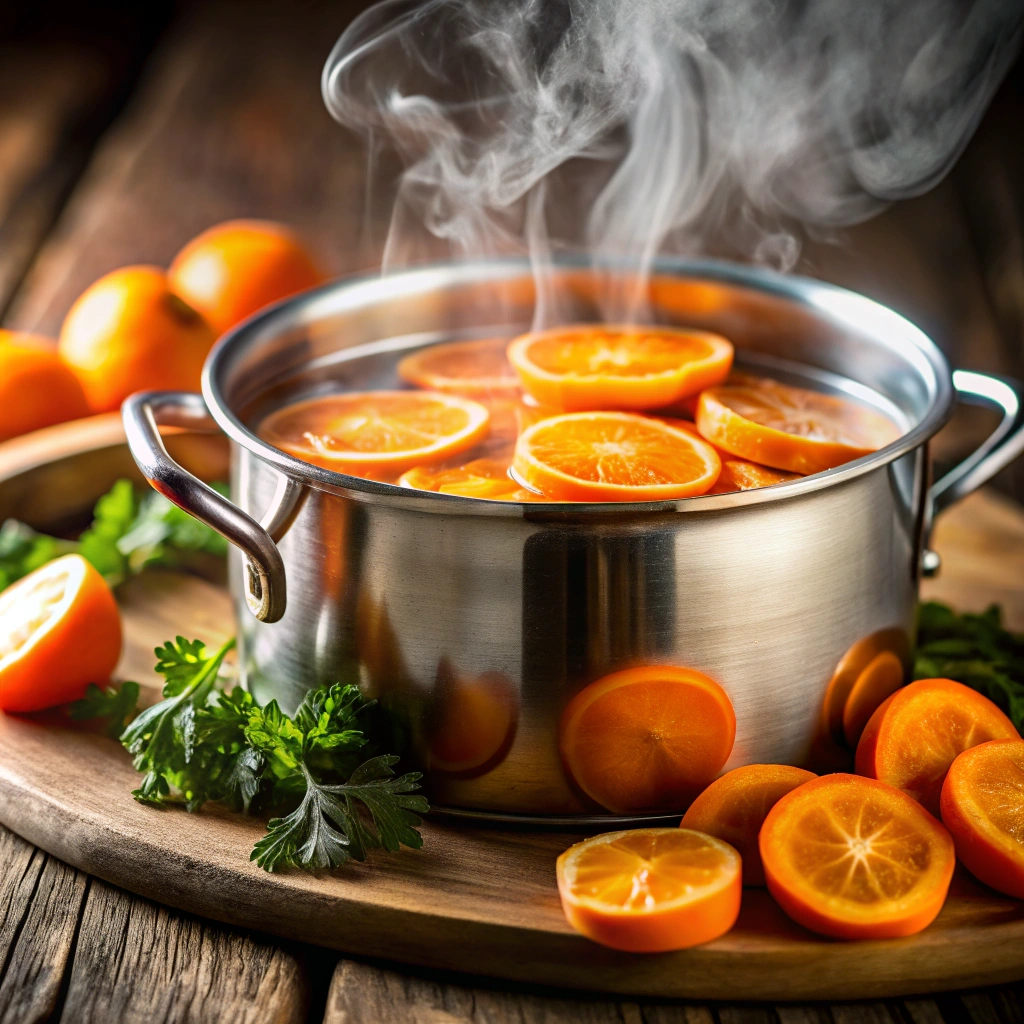
FAQs About Cooking Frozen Carrots
Can You Cook Frozen Carrots Without Thawing?
Yes, frozen carrots can be cooked directly without thawing. This is particularly convenient for soups, stews, and casseroles where the carrots cook evenly with other ingredients. For roasting or stir-frying, slight thawing can help achieve better texture.
Are Frozen Carrots As Healthy As Fresh Carrots?
Absolutely! Frozen carrots retain most of their nutrients, including beta-carotene and vitamin A. While some vitamin C may be lost during blanching, frozen carrots are still a nutritious and convenient option.
How Do You Prevent Frozen Carrots From Becoming Mushy?
To avoid mushy carrots, use high-heat cooking methods like roasting or stir-frying. Avoid overcooking them, as this can break down their texture further.
Do Frozen Carrots Need To Be Blanched Before Cooking?
Most store-bought frozen carrots are pre-blanched, so they’re ready to cook straight from the freezer. If you freeze fresh carrots at home, blanching them before freezing helps preserve their texture and color.
Can You Use Frozen Carrots In Salads?
While frozen carrots are better suited for cooked dishes due to their softer texture, they can be used in cold salads if lightly cooked and cooled. For example, shredded frozen carrots can work in carrot slaws or pasta salads.
What Are The Best Ways To Use Frozen Carrots?
Frozen carrots are incredibly versatile and can be used in soups, stews, casseroles, stir-fries, and roasted side dishes. For ideas, explore Frozen Carrots Recipe Ideas for simple and delicious ways to incorporate them into your meals.
Final Thoughts
Cooking frozen carrots is not only possible but also incredibly practical for busy cooks and anyone looking to reduce food waste. Their long shelf life, pre-prepared nature, and year-round availability make them a go-to ingredient for quick and nutritious meals. Whether you’re roasting them to perfection, tossing them in soups, or preparing healthy bowls, frozen carrots are a lifesaver in the kitchen. For more ideas on how to use carrots and other vegetables creatively, explore Frozen Carrots Recipe Ideas and Breakfast Burritos Recipe For Meal Prep.
Additionally, cooking frozen carrots provides consistent quality and flavor, making them ideal for dishes like Slow Cooker Taco Soup Recipe or even alongside protein-rich ingredients in Leftover Rotisserie Chicken Recipes. Whether you’re looking to save time, add flavor, or make the most out of frozen vegetables, there’s no shortage of options.
Want more tips, recipes, and kitchen hacks? Follow us on social media! Connect with us on Facebook, Instagram, Pinterest, and X for daily updates and ideas!



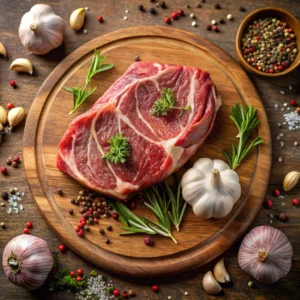
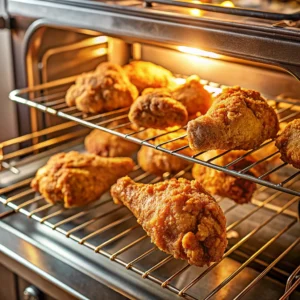

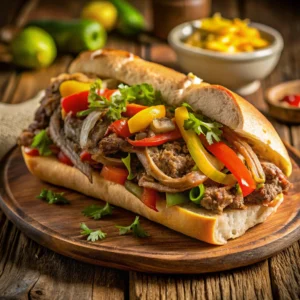
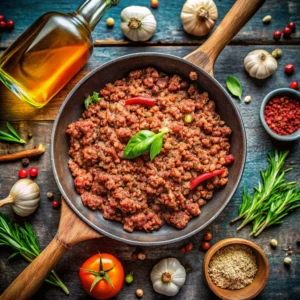
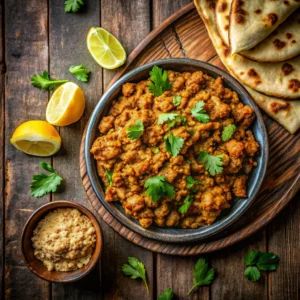
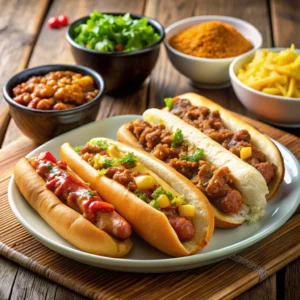
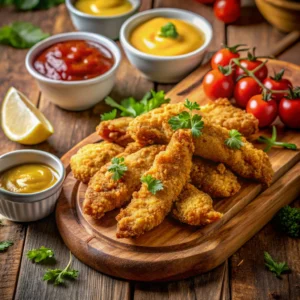
You might also like these recipes
Do You Wash Chicken Keema? The Ultimate Guide to Safe Handling
The Best Side Dishes to Serve With Chili Dogs
Is It Better to Pan Fry or Oven Bake Chicken?